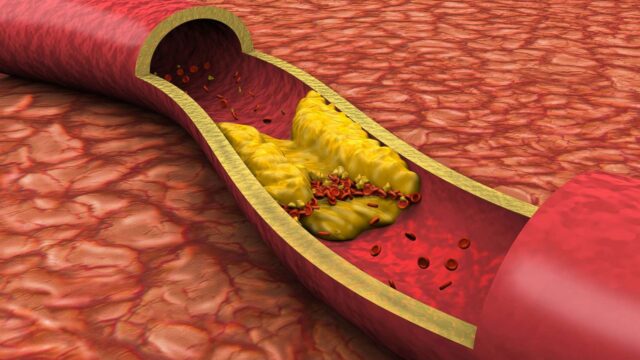FTC disclaimer: This post may contains affiliate links and we will be compensated if you click on a link and make a purchase.
Cancer during pregnancy is rare but happens to thousands of women in the U.S. each year. The most common cancers found during pregnancy are breast, cervical, thyroid, colon, and ovarian cancers. Also, melanoma, lymphoma, and leukemia are common. If someone gets pregnant while being treated for cancer, the treatment plan is the same as if the cancer was found during pregnancy.
Key Takeaways
- Cancer during pregnancy is a rare but possible occurrence, affecting thousands of women each year in the U.S.
- The most common types of cancer found during pregnancy include breast, cervical, thyroid, colon, and ovarian cancers, as well as melanoma, lymphoma, and leukemia.
- Cancer diagnosed during pregnancy is often at a more advanced stage due to challenges in detection.
- Imaging tests like mammograms, ultrasounds, and MRIs are commonly used to diagnose and stage cancer during pregnancy.
- Outcomes for pregnant and non-pregnant women with cancer can be similar when comparing cancers found at the same stage.
Introduction to Cancer During Pregnancy
Cancer during pregnancy is rare but can happen. About 1 in 2000 pregnancies are affected by cancer. The most common cancers during pregnancy are breast, cervical, thyroid, colon, and ovarian cancers. Melanoma, lymphoma, and leukemia are also possible.
If someone gets pregnant while being treated for cancer, treatment stays the same. This is true whether the cancer is diagnosed during pregnancy or not.
Rare but Possible Occurrence
A study from 1984 found a link between pregnancy and new cancer cases. A Danish study from 1977 to 2006 looked at cancer during pregnancy. Even though it’s rare, it’s key for pregnant women to know about the risk of cancer during pregnancy and the types of cancer that can occur.
Common Cancer Types in Pregnancy
The most common cancers during pregnancy are breast, cervical, and melanoma. Breast cancer is graded based on tumor size, location, and spread. Cervical and other gynecological cancers can also be diagnosed during pregnancy. A team effort is needed to manage these conditions.
Understanding cancer is vital for pregnant women and their doctors. Knowing the causes, symptoms, and prevention is crucial.
Cancer Type | Incidence During Pregnancy |
|---|---|
Breast Cancer | Most common |
Cervical Cancer | Second most common |
Thyroid Cancer | Third most common |
Melanoma | Fourth most common |
Leukemia and Lymphoma | Less common, but can occur |

“While the diagnosis of cancer during pregnancy is rare, it is important for expectant mothers to be aware of the risk of cancer during pregnancy and the types of cancer that can occur.”
Pregnant women and their doctors must watch for cancer signs. Early detection is key to better outcomes. New imaging and diagnostic tools help manage cancer during pregnancy.
Detecting Cancer During Pregnancy
Cancer during pregnancy is hard to spot early. Hormone changes, and the growing fetus can hide symptoms. Pregnant women should watch their health closely and tell their doctors about any odd feelings right away.
Challenges in Early Detection
Finding cancer in pregnancy is tough because pregnancy changes can look like cancer. For example, a new lump might seem like a pregnancy change, not cancer. Also, regular prenatal tests might miss cancer.
Being Proactive About Symptoms
Pregnant women should watch for and report any unusual signs. This includes new lumps, pain, bleeding, or big changes in energy or hunger. Being active in health can lead to early cancer findings and better treatment chances.
Doctors should also be careful and think of cancer when checking pregnant patients. This way, any cancer can be found and treated quickly.
Cancer Type | Incidence in Pregnancy |
|---|---|
Breast Cancer | Approximately 1 in 3000 pregnant women |
Cervical Cancer | Affecting pregnant women |
Thyroid Cancer | Affecting pregnant women |
Hodgkin Lymphoma | Affecting pregnant women |
Non-Hodgkin Lymphoma | Affecting pregnant women |
Melanoma | Affecting pregnant women |
Gestational Trophoblastic Tumor | Affecting pregnant women |
The table shows different cancers that can happen during pregnancy, with breast cancer being the most common. Pregnant women should know about these risks and work with their doctors to stay healthy.

“Early detection and proactive monitoring are crucial for managing cancer during pregnancy, as the physical changes and hormone fluctuations can make it challenging to identify symptoms.”
Diagnostic Tests for Cancer During Pregnancy
When cancer is suspected or found during pregnancy, tests are needed to confirm it. These tests help plan the right treatment. But it’s very important to make sure they are safe for the baby.
Imaging Tests and Safety Concerns
Ultrasounds, mammograms, and low-dose x-rays are usually safe for pregnant women. They don’t expose the baby to much radiation. But, CT scans and PET scans are avoided because they use more radiation.
MRI scans can be used too. But, doctors must carefully check if the contrast agents are safe.
The IDENTIFY study has found cancer in about 60% of participants so far. Yet, about half of those referred don’t join, often because they don’t think they have cancer. The study aims to enroll 150 people who have already signed up, or about 70. Lymphomas are the most common cancer found, with some rare ones too.
Some people have had to wait to get their test results. But as more people learn about the study, wait times are getting shorter. The study wants to change how pregnant women with abnormal test results are treated, which could affect insurance for follow-up care.
Healthcare providers can help pregnant women make safe choices. They can choose tests that are safe for both the mother and the baby.

Biopsy Procedures During Pregnancy
If a new lump or abnormal test result worries you about cancer, a biopsy is often needed to confirm it. A core needle biopsy, guided by ultrasound or CT scan, is common. Surgical biopsies, which remove more tissue, are usually done later in pregnancy. This is when it’s safer for the fetus.
Both types of biopsies can be done safely during pregnancy with the right precautions.
Mammograms are usually safe during pregnancy, focusing on the breasts and protecting the fetus. Ultrasound exams of the breast are safe and often used during pregnancy. However, an MRI for breast cancer during pregnancy is not recommended because of the risks of contrast material.
Ultrasound scans are safe during pregnancy and can help stage breast cancer. Chest X-rays are safe when the abdomen is shielded, with minimal radiation exposure. However, PET scans, bone scans, and CT scans expose the fetus to more radiation and are rarely needed for staging during pregnancy.
There are studies on mammary cancers and pregnancy, breast cancer in young women, and the impact of pregnancy on breast cancer risk.
These studies also look at the prognosis for young women with breast cancer and the effect of pregnancy on survival. They discuss advising women against pregnancy after breast cancer treatment and treating breast tumors during pregnancy.
They also cover imaging strategies in pregnant breast cancer patients and the safety of MRI in infants. The studies include the use of aspiration cytology for diagnosing breast masses and the occurrence of milk fistula after core breast biopsy.
They also discuss the impact of pregnancy on breast cancer outcomes and the treatment of pregnant breast cancer patients. The studies examine the expression of estrogen receptor, progesterone receptor, and HER-2/neu protein in breast cancers from pregnant patients.

In summary, cancer biopsies during pregnancy can be safely done with the right precautions. However, the safety of imaging tests may vary. Pregnant women and their healthcare providers must carefully consider the benefits and risks of each test to ensure the best outcome for both the mother and the fetus.
Impact of Pregnancy on Cancer Survival Rates
Pregnancy and cancer are not always a bad mix. While finding and treating cancer can be harder, research shows that pregnant and non-pregnant women often have similar outcomes. The stage of cancer and the type of cancer play big roles in treatment and results.
Breast cancer is the most common in pregnant women, followed by blood cancers and brain tumors. For breast cancer, the most common type is Infiltrating Ductal Carcinoma (IDC), often found in Stages I and II. Pregnant women with breast cancer have a survival rate of about 70%.
Hematological cancers have similar outcomes in pregnant women as in non-pregnant women. This is especially true for those who start chemotherapy in the second half of their pregnancy. Brain tumors, like glial tumors, are also seen in pregnant women.
While treatment delays during pregnancy don’t seem to hurt outcomes, cancers linked to pregnancy can be more deadly. This is especially true for breast, ovarian, and stomach cancers during pregnancy. Brain, breast, and melanoma cancers in the postpartum period also have higher risks.
In short, the effect of pregnancy on cancer survival is complex. It depends on the cancer type, stage, and when treatment starts. While pregnant women often have similar survival rates as non-pregnant women, some cancers and situations are harder.
Pregnant women and their doctors must work together. They need to face the challenges and make smart choices about treatment during this critical time.
Safety of Cancer Treatments During Pregnancy
Being diagnosed with cancer while pregnant can be scary. But the good news is that most cancer treatments are safe during pregnancy. The treatments and when they are given might change because of the pregnancy.
General Treatment Principles
Surgery is often safe after the first three months. Chemotherapy can be used in the second and third trimesters. But, it’s not safe in the first trimester because it could harm the baby.
Radiation therapy near the baby’s area is not safe during pregnancy. It should be avoided.
Termination of Pregnancy Considerations
Sometimes, the best cancer treatment might not be safe for the baby. In these cases, ending the pregnancy might be considered. This is a very personal and complex decision that needs careful talk with the healthcare team.
The safety of cancer treatments during pregnancy depends on many things. These include the cancer type, its stage, the baby’s age, and the mother’s health. A team of doctors, including oncologists and obstetricians, is key to getting the best results for both mom and baby.
Even though treating cancer during pregnancy is tough, medical progress has helped. Now, many women can get the treatments they need while keeping their babies safe.
Surgical Treatment Options
Surgery is often the best choice for treating cancer during pregnancy, especially after the first trimester. New surgical methods and careful monitoring help lower the mother and baby risks. If a general anesthetic is needed, surgery is usually delayed until at least 14 weeks to protect the fetus.
For breast cancer, which is common during pregnancy, surgery is usually safe for the baby. However, anesthesia risks must be considered based on the trimester. Radiation, hormone, and targeted therapies for breast cancer are usually delayed until after the baby is born to avoid harming it.
Cervical cancer poses extra challenges because of the tumor’s closeness to the fetus. For cancers like leukemia, lymphoma, and ovarian cancer, surgery’s timing and method are adjusted to protect both mom and baby.
Choosing surgery during pregnancy needs careful thought of risks and benefits. It also requires teamwork between the patient, oncologist, and obstetrician. With the right team, many pregnant women with cancer can get the care they need.
Chemotherapy and Other Drug Therapies
Cancer treatment during pregnancy can be tough. Chemotherapy is usually not used in the first trimester because of the risk of birth defects and miscarriage. But it might be used in the second and third trimesters. This is because the placenta helps protect the baby. Yet, there are still risks, like preterm delivery and low birth weight.
Timing and Risks of Chemotherapy
Chemotherapy is not given after week 35 of pregnancy. This lets the bone marrow recover in both the mom and the baby before birth. Even though kids exposed to chemotherapy in the womb usually grow up fine, there are still concerns about fertility and sperm production in males. Also, breastfeeding while on chemotherapy is not advised because it could harm the baby.
Newer treatments like targeted therapies and hormone therapies are more likely to harm the fetus. They are usually not given during pregnancy. Chemotherapy can be given after 14 weeks of pregnancy to avoid harming the baby. Studies show that babies exposed to chemotherapy after 14 weeks do not have more problems than those not exposed. But, chemotherapy might increase the risk of early delivery and lower birth weight.
In some cases, ending the pregnancy might be suggested if starting chemotherapy quickly is needed to control cancer. It’s important to focus on the patient and follow guidelines when treating cancer during pregnancy.
“Chemotherapy may be given during the second and third trimesters, as the placenta can provide some protection for the developing baby.”
Radiation Therapy Considerations
Radiation therapy is not usually given during pregnancy because it can harm the baby, especially in the first trimester. But, if the cancer is a big threat to the mother’s life, doctors might use targeted radiation. This way, they try to protect the baby as much as possible.
If radiation therapy is needed, doctors might try to aim it at parts of the body far from the baby. This could be the head or neck. They use special shields to keep the baby safe. But, they avoid using radiation on the abdomen or pelvis because it’s too risky for the baby.
The baby is very sensitive to radiation in the first 14 days after conception. Too much radiation can cause serious problems like birth defects and lower IQ. There’s no safe amount of radiation for risks like cancer, and the risks go up with the dose.
In some cases, doctors might look into other treatments like proton therapy or brachytherapy. These might be safer because they target the tumor more precisely. Learn more about the safety of radiation exposure during pregnancy
Radiation Exposure Effects | Threshold Dose | Potential Health Consequences |
|---|---|---|
Deterministic Effects | 0.1 Gy | Congenital malformations, lower IQ, mental retardation, microcephaly, neurobehavioral dysfunctions, fetal death, increased cancer risk |
Stochastic Effects | No Threshold | Increased risk of cancer induction, linearly increasing with dose |
Pregnant women with cancer need a team of doctors to help them. This team should include radiation oncologists, obstetricians, and other specialists. They will help decide if radiation therapy is safe and look for other treatments that are better for both the mother and the baby.
“The developing fetus is most sensitive to ionizing radiation during the first 14 days post-conception, with a heightened risk of congenital malformations, lower IQ, mental retardation, microcephaly, neurobehavioral dysfunctions, fetal death, and increased cancer risk at a reported threshold dose of 0.1Gy.”
Cancer and Pregnancy
Getting a cancer diagnosis while pregnant is tough. But, thanks to new medical care, many women can have a healthy baby and get the right cancer treatment. Choriocarcinoma, a rare cancer linked to abnormal pregnancies, can often be treated well.
It’s key for pregnant women with cancer to team up with many doctors. This includes oncologists, obstetricians, and others. They help figure out the best treatment options and make choices together.
Pregnancy can affect some cancers in different ways. Studies show it might protect against breast cancer in some cases. But, it can also raise the risk of breast cancer in others, especially if you have certain conditions or were exposed to certain chemicals during pregnancy.
Research has looked into how pregnancy changes cancer and its outcome. It shows pregnancy can change breast cancer, especially the triple-negative type. Doctors also study how to use MRIs safely during pregnancy to help diagnose and manage cancer.
Handling cancer and pregnancy needs a team effort. Doctors and patients work together to create plans that keep both mom and baby safe.,,
“Pregnancy has a protective role in breast cancer according to research data.”
Key Considerations | Implications |
|---|---|
Choriocarcinoma |
|
Breast Cancer |
|
Navigating cancer during pregnancy requires a team effort. Doctors and patients work together to create plans that keep both mom and baby safe.,,
Treatment Planning and Decision-Making
When a pregnant woman is diagnosed with cancer, a team of experts works together. They create a treatment plan that’s just right for her. This team includes doctors who specialize in cancer and pregnancy, and others who focus on the health of the mother and baby.
Multidisciplinary Team Approach
This team looks at many things. They consider the type and stage of cancer, the pregnancy stage, and the risks and benefits of treatments. They ensure the plan is good for the mom and baby.
Factors Affecting Treatment Choices
The team also considers the patient’s wishes and health goals. They consider whether she wants to keep the pregnancy, how treatment might affect the baby, and her personal beliefs.
The goal is to make a treatment plan that helps the mom and keeps the baby safe. This way, the patient feels informed and can make the best choice for her family.
“The multidisciplinary team approach allows us to provide the most comprehensive and personalized cancer care for pregnant women, balancing the needs of the mother and the unborn child.”
Conclusion
Cancer during pregnancy is a complex and challenging situation. A specialized and collaborative approach to care is needed. While it’s rare, with a 20-year study of 1170 patients, it’s key for pregnant women and their healthcare providers to know the risks and treatment options.
Guidelines from a third international consensus meeting help healthcare teams make decisions about cancer treatment during pregnancy. Tumors during pregnancy, both benign and malignant, are possible. The most common types are breast cancer, cervical cancer, lymphoma, and melanoma.
By working with a multidisciplinary team, pregnant women with cancer can make informed decisions. This increases their chances of a positive outcome for both themselves and their child. Studies have looked into various aspects of cancer treatment during pregnancy. This includes imaging, surgery, chemotherapy, and radiation therapy.
As research and medical advancements continue, more resources will be available. These will support pregnant women and their families during this challenging time.
FAQ
What is the likelihood of being diagnosed with cancer during pregnancy?
Cancer in pregnancy is rare but can happen. In the U.S., thousands of pregnant women get cancer each year. Common cancers include breast, cervical, and thyroid cancers, as well as melanoma and leukemia.
How are cancers typically detected during pregnancy?
Cancer is often found when a person notices a new lump or pain. Or, they might see other body changes that make them go to the doctor. Sometimes, prenatal care can find cancer, but it’s harder to spot because of hormone changes and the growing fetus.
What types of diagnostic tests are used to evaluate cancer during pregnancy?
Safe tests for cancer in pregnancy include mammograms and ultrasounds. But, CT scans and PET scans are usually avoided because they use too much radiation. MRIs are sometimes used but with caution.
How are biopsies performed during pregnancy?
Needle biopsies are common and guided by ultrasound. Surgical biopsies are often delayed until the second or third trimester. Both types are safe with the right precautions.
How does pregnancy affect the prognosis for a woman with cancer?
Studies show that pregnant and non-pregnant women with cancer have similar outcomes. Treatment delays during pregnancy don’t seem to affect cancer results.
What cancer treatments are considered safe during pregnancy?
Surgery is safe after the first trimester. Chemotherapy is okay in the second and third trimesters. But, radiation therapy near the fetus is not safe during pregnancy.
How is the treatment plan for a pregnant woman with cancer developed?
A team of experts, including oncologists and obstetricians, plans the treatment. They consider the cancer type, pregnancy stage, and treatment risks. They also consider the woman’s health goals and preferences.








